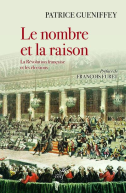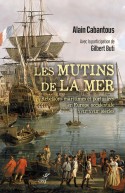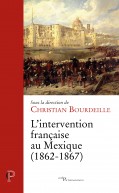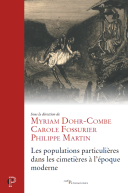
Une grâce obstinée, Musset
Collection Petits Cerf Histoire
224 pages - mai 2010
24,20€
Avec une prudence de dandy, Musset se méfie des idéaux majuscules — la Politique, le Savoir, la Philosophie, la Religion, la Littérature, même — parce qu'il sait qu'après 1793 et 1814, l'homme est durablement installé dans un paysage de ruines. L'amère vérité ne se clame pas, elle se dit « mezza voce », avec une forme consentie de désinvolture. Une grâce obstinée. Car dans le désastre demeure une étincelle, infime, précaire, elle-même travaillée par la désillusion ici régnante : l'amour. Soit presque rien. Sur quoi Musset fait le pari de tout bâtir, sa vie comme son œuvre. Le presque-rien de Musset a encore beaucoup à nous dire, de cette présence ambiguë, en nous, du vide et de l'absence, de nos façons d'aimer, de ce que nous attendons des livres, de notre rapport aux idéaux qui continuent en nous leur œuvre par-delà leur éviction. Dans l'enquête que nous avons entreprise depuis 2001 pour les Éditions du Cerf sur les rapports de la littérature et de la spiritualité, l'exercice de lecture que nous permet Musset nous mène vers cette zone de l'esprit, assez envoûtante, où le désenchantement le plus profond croise de façon inattendue une forme instinctive d'espérance. [E. G.]
--
With the caution of a dandy, Musset steers clear of capitalized ideals - Politics, Learning, Philosophy, Religion, even Literature - because he knows that the events of 1793 and 1814 placed humanity in a wasteland. The bitter truth is not to be trumpeted; it is uttered ‘mezza voce’ with a conventional degree of casualness. A stubborn grace. For even in disaster there remains a tiny, precarious spark; itself sustained by the disillusion that reigns here: love. That is to say, ‘next to nothing’ – upon which Musset takes the risk of constructing everything: his life as well as his work. Musset’s ‘next-to-nothing’ still has much to teach us, about the ambiguous presence within us of emptiness and absence, about how we love, what we expect from books, our relationship with ideals that continue to work on us after their eviction. In the context of the investigation into the links between literature and spirituality, which we have been conducting on behalf of Editions du Cerf since 2001, the exercise in reading offered by Musset leads us into a somewhat spellbinding spiritual zone, where the deepest disillusion unexpectedly encounters an instinctive form of hope. [E. G.]
--
With the caution of a dandy, Musset steers clear of capitalized ideals - Politics, Learning, Philosophy, Religion, even Literature - because he knows that the events of 1793 and 1814 placed humanity in a wasteland. The bitter truth is not to be trumpeted; it is uttered ‘mezza voce’ with a conventional degree of casualness. A stubborn grace. For even in disaster there remains a tiny, precarious spark; itself sustained by the disillusion that reigns here: love. That is to say, ‘next to nothing’ – upon which Musset takes the risk of constructing everything: his life as well as his work. Musset’s ‘next-to-nothing’ still has much to teach us, about the ambiguous presence within us of emptiness and absence, about how we love, what we expect from books, our relationship with ideals that continue to work on us after their eviction. In the context of the investigation into the links between literature and spirituality, which we have been conducting on behalf of Editions du Cerf since 2001, the exercise in reading offered by Musset leads us into a somewhat spellbinding spiritual zone, where the deepest disillusion unexpectedly encounters an instinctive form of hope. [E. G.]
- Dimensions : 125x195x15
- ISBN : 9782204091985
- Poids : 260 grammes
DU MÊME AUTEUR
> VOIR TOUS LES LIVRES DE l'AUTEUR
DANS LA CATÉGORIE HISTOIRE GÉNÉRALE
Les populations particulières dans les cimetières de l'époque moderne
de Philippe Martin ,Carole Fossurier ,Myriam Dohr-Combe
288 pages - nov. 2023
Sale guerre
L'invasion du Mexique par les États-Unis (1846-1848)
de Éric Taladoire
208 pages - oct. 2021










